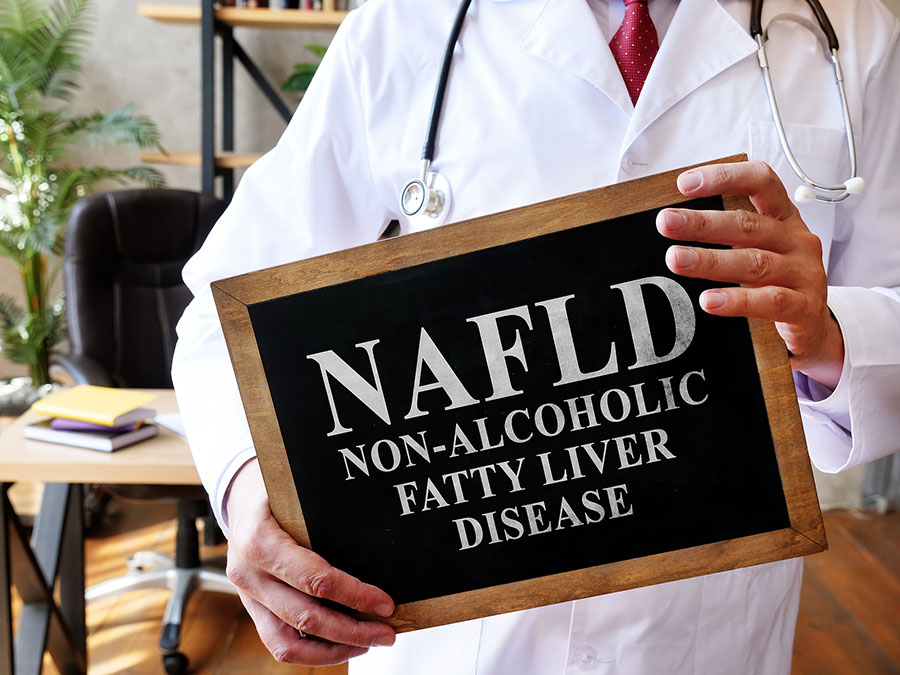 Some previous studies have found that coffee helps to heal nonalcoholic fatty liver disease (NAFLD).
Some previous studies have found that coffee helps to heal nonalcoholic fatty liver disease (NAFLD).
Whether this is true of both caffeinated and decaffeinated coffee has not been known.
A new study in the journal Nutrients reveals the truth, and the results may surprise you.
The authors were curious about whether the benefits of coffee for NAFLD patients were due to the caffeine or the non-caffeine ingredients, such as polyphenols and other natural chemicals.
Nonalcoholic fatty liver disease (NAFLD) is a group of liver conditions that happens when fat builds up in the liver. This can lead to liver fibrosis (severe fat buildup), which can progress to cirrhosis (liver scarring) and even liver cancer.
Because NAFLD is caused by a sedentary lifestyle and a high-calorie diet, it is common in people who are overweight and have type 2 diabetes.
The scientists recruited 156 overweight subjects, 87% of whom had diabetes. Of the diabetic participants, 98 provided a 24-hour urine sample so that the different types of coffee metabolites could be recorded.
The investigation yielded the following results.
-
1. Those with high total coffee metabolites, both caffeine and non-caffeine, had low scores on the fatty liver index, while those with low coffee metabolites had high scores.
2. Total coffee metabolites were higher for those with no liver fibrosis than for those with fibrosis.
3. Examined separately, both caffeine and non-caffeine ingredients of coffee were linked with lower fatty liver index scores.
These results mean that both caffeine and non-caffeine ingredients are responsible for the positive effect of coffee on NAFLD.

 Overcoming IBD
Overcoming IBD Multiple Sclerosis
Multiple Sclerosis Banishing Bronchitis
Banishing Bronchitis Gum Disease Gone
Gum Disease Gone Overcoming Onychomycosis
Overcoming Onychomycosis Neuropathy No More
Neuropathy No More The Prostate Protocol
The Prostate Protocol Brain Booster
Brain Booster
 Ironbound
Ironbound
 Solution for Shingles
Solution for Shingles
 The Bone Density Solution
The Bone Density Solution
 The Ultimate Healing Protocol
The Ultimate Healing Protocol
 The Parkinson's Protocol
The Parkinson's Protocol
 The Chronic Kidney Disease Solution
The Chronic Kidney Disease Solution
 Overthrowing Anxiety
Overthrowing Anxiety The Fatty Liver Solution
The Fatty Liver Solution The Hypothyroidism Solution
The Hypothyroidism Solution
 The End of Gout
The End of Gout The Blood Pressure Program
The Blood Pressure Program
 The Oxigized Cholesterol Strategy
The Oxigized Cholesterol Strategy
 Stop Snoring And Sleep Apnea Program
Stop Snoring And Sleep Apnea Program
 The Arthritis Strategy
The Arthritis Strategy The Vertigo & Dizziness Program
The Vertigo & Dizziness Program The 3-Step Diabetes Strategy
The 3-Step Diabetes Strategy Hemorrhoids Healing Protocol
Hemorrhoids Healing Protocol The Erectile Dysfunction Master
The Erectile Dysfunction Master Weight Loss Breeze
Weight Loss Breeze The IBS Program
The IBS Program The Insomnia Program
The Insomnia Program The Migraine and Headache Program
The Migraine and Headache Program The Neck Pain Solution
The Neck Pain Solution The Menopause Solution
The Menopause Solution The Ejaculation Master
The Ejaculation Master The TMJ Solution
The TMJ Solution The Acid Reflux Solution
The Acid Reflux Solution The Fibromyalgia Solution
The Fibromyalgia Solution The Psoriasis Strategy
The Psoriasis Strategy